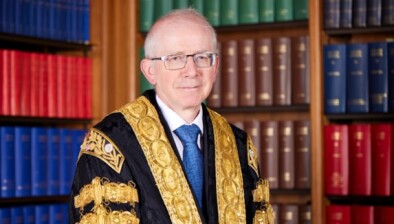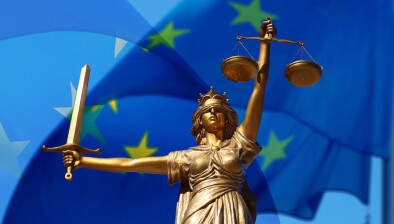UK: Prime Minister Boris Johnson unlawfully prorogued Parliament, full bench of Supreme Court rules in historic judgment
Prime Minister Boris Johnson unlawfully prorogued Parliament, a full bench of the UK Supreme Court has unanimously ruled in a historic judgment.

About this case:
- Citation:[2019] UKSC 41
- Judgment:
- Court:UK Supreme Court
- Judge:Lady Hale
In court this morning, Lady Hale, President of the Supreme Court – sitting with Lord Reed, Deputy President; Lord Kerr; Lord Wilson; Lord Carnwath; Lord Hodge; Lady Black; Lord Lloyd-Jones; Lady Arden; Lord Kitchin; and Lord Sales – delivered judgment in both R (on the application of Miller) (Appellant) v The Prime Minister (Respondent) and Cherry and others (Respondents) v Advocate General for Scotland (Appellant) (Scotland).
The central issue for the court was whether the advice given to the Queen by Mr Johnson to prorogue Parliament was unlawful and, if so, what the legal consequences were.
On 30 July 2019, the petitioners in Scotland launched a case in the Court of Session claiming prorogation would be unlawful and seeking a declaration to that effect and an interdict to prevent it.
On 4 September, Lord Doherty, in the Outer House of the Court of Session, refused the petition, on the ground that the issue was not justiciable in a court of law. The Inner House, comprising the Lord President, Lord Carloway, Lord Brodie and Lord Drummond Young, allowed the appeal, holding that the advice given to Her Majesty was justiciable, that it was motivated by the improper purpose of stymying Parliamentary scrutiny of the executive, and that it and the prorogation which followed it were unlawful and thus null and of no effect.
As soon as prorogation had been announced, Gina Miller launched proceedings in the High Court in London, seeking a declaration that the Prime Minister’s advice to her Majesty was unlawful. Those proceedings were heard by a Divisional Court (Lord Burnett of Maldon, Lord Chief Justice of England and Wales; Sir Terence Etherton, Master of the Rolls; and Dame Victoria Sharp, President of the Queen’s Bench Division) on 5 September and their judgment was delivered on 11 September. They dismissed the claim on the ground that the issue was not justiciable. They granted a “leap-frog” certificate so that the case could come directly to the Supreme Court.
In view of the grave constitutional importance of the matter, and the disagreement between the courts in England and Wales and Scotland, the Supreme Court convened a panel of 11 justices, the maximum number of serving justices who are permitted to sit.
The first question was whether the lawfulness of the Prime Minister’s advice to Her Majesty was justiciable. The court held that it was. The courts have exercised a supervisory jurisdiction over the lawfulness of acts of the government for centuries. As long ago as 1611, the court held that “the King [who was then the government] hath no prerogative but that which the law of the land allows him”. However, in considering prerogative powers, it is necessary to distinguish between two different questions. The first is whether a prerogative power exists and if so its extent. The second is whether the exercise of that power, within its limits, is open to legal challenge. This second question may depend upon what the power is all about: some powers are not amenable to judicial review while others are. However, there is no doubt that the courts have jurisdiction to decide upon the existence and limits of a prerogative power. All the parties to this case accept that. This court concluded that this case was about the limits of the power to advise Her Majesty to prorogue Parliament.
The second question, therefore, was what are the limits to that power? Two fundamental principles of the constitution are relevant to deciding that question. The first is Parliamentary sovereignty – that Parliament can make laws which everyone must obey: this would be undermined if the executive could, through the use of the prerogative, prevent Parliament from exercising its power to make laws for as long as it pleased. The second fundamental principle is Parliamentary accountability: in the words of Lord Bingham, senior Law Lord, “the conduct of government by a Prime Minister and cabinet collectively responsible and accountable to Parliament lies at the heart of Westminster democracy”. The power to prorogue is limited by the constitutional principles with which it would otherwise conflict.
Lady Hale said: “For present purposes, the relevant limit on the power to prorogue is this: that a decision to prorogue (or advise the monarch to prorogue) will be unlawful if the prorogation has the effect of frustrating or preventing, without reasonable justification, the ability of Parliament to carry out its constitutional functions as a legislature and as the body responsible for the supervision of the executive. In judging any justification which might be put forward, the court must of course be sensitive to the responsibilities and experience of the Prime Minister and proceed with appropriate caution.
“If the prorogation does have that effect, without reasonable justification, there is no need for the court to consider whether the Prime Minister’s motive or purpose was unlawful.”
She added: “The third question, therefore, is whether this prorogation did have the effect of frustrating or preventing the ability of Parliament to carry out its constitutional functions without reasonable justification. This was not a normal prorogation in the run-up to a Queen’s Speech. It prevented Parliament from carrying out its constitutional role for five out of the possible eight weeks between the end of the summer recess and exit day on 31 October.
“Proroguing Parliament is quite different from Parliament going into recess. While Parliament is prorogued, neither House can meet, debate or pass legislation. Neither House can debate government policy. Nor may members ask written or oral questions of ministers or meet and take evidence in committees. In general, bills which have not yet completed all their stages are lost and will have to start again from scratch after the Queen’s Speech. During a recess, on the other hand, the House does not sit but Parliamentary business can otherwise continue as usual. This prolonged suspension of parliamentary democracy took place in quite exceptional circumstances: the fundamental change which was due to take place in the constitution of the United Kingdom on 31st October. Parliament, and in particular the House of Commons as the elected representatives of the people, has a right to a voice in how that change comes about. The effect upon the fundamentals of our democracy was extreme.
“No justification for taking action with such an extreme effect has been put before the court. The only evidence of why it was taken is the memorandum from Nikki da Costa of 15th August. This explains why holding the Queen’s Speech to open a new session of Parliament on 14th October would be desirable. It does not explain why it was necessary to bring Parliamentary business to a halt for five weeks before that, when the normal period necessary to prepare for the Queen’s Speech is four to six days. It does not discuss the difference between prorogation and recess. It does not discuss the impact of prorogation on the special procedures for scrutinising the delegated legislation necessary to achieve an orderly withdrawal from the European Union, with or without a withdrawal agreement, on 31st October. It does not discuss what Parliamentary time would be needed to secure Parliamentary approval for any new withdrawal agreement, as required by section 13 of the European Union (Withdrawal) Act 2018.
“The court is bound to conclude, therefore, that the decision to advise Her Majesty to prorogue Parliament was unlawful because it had the effect of frustrating or preventing the ability of Parliament to carry out its constitutional functions without reasonable justification.”
The Supreme Court President then considered the remedies the court should grant.
“The court can certainly declare that the advice was unlawful. The Inner House went further and declared that any prorogation resulting from it was null and of no effect. The government argues that the Inner House could not do that because the prorogation was a ‘proceeding in Parliament’ which, under the Bill of Rights of 1688 cannot be impugned or questioned in any court. But it is quite clear that the prorogation is not a proceeding in Parliament. It takes place in the House of Lords chamber in the presence of members of both Houses, but it is not their decision. It is something which has been imposed upon them from outside. It is not something on which members can speak or vote. It is not the core or essential business of Parliament which the Bill of Rights protects. Quite the reverse: it brings that core or essential business to an end.
“This Court has already concluded that the Prime Minister’s advice to Her Majesty was unlawful, void and of no effect. This means that the Order in Council to which it led was also unlawful, void and of no effect and should be quashed. This means that when the Royal Commissioners walked into the House of Lords it was as if they walked in with a blank sheet of paper. The prorogation was also void and of no effect. Parliament has not been prorogued. This is the unanimous judgment of all 11 Justices.”
Lady Hale concluded: “It is for Parliament, and in particular the Speaker and the Lord Speaker to decide what to do next. Unless there is some Parliamentary rule of which we are unaware, they can take immediate steps to enable each House to meet as soon as possible. It is not clear to us that any step is needed from the Prime Minister, but if it is, the court is pleased that his counsel have told the court that he will take all necessary steps to comply with the terms of any declaration made by this court.
“It follows that the Advocate General’s appeal in the case of Cherry is dismissed and Mrs Miller’s appeal is allowed. The same declarations and orders should be made in each case.”










